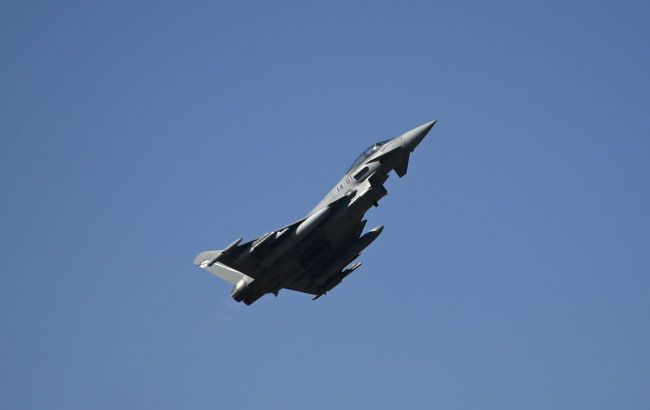New provocation: Russian fighter jets violate Lithuanian airspace
 Illustrative photo: Spanish Eurofighter Typhoons were scrambled to intercept the Russian jets (Getty Images)
Illustrative photo: Spanish Eurofighter Typhoons were scrambled to intercept the Russian jets (Getty Images)
Russian military aircraft violated Lithuanian airspace on the afternoon of October 23. A fighter jet and a refueling aircraft entered Lithuania's airspace for 18 seconds, and NATO aircraft were scrambled to intercept them, according to the Lithuanian Ministry of Defense and President Gitanas Nausėda.
"On October 23, around 6:00 p.m., the Lithuanian Air Force detected a border violation near Kybartai — a Russian Su-30 fighter jet and an Il-78 refueling aircraft," the statement said.
It is believed the Russian aircraft were conducting refueling exercises in the Kaliningrad region. They crossed approximately 700 meters into Lithuanian airspace and stayed for about 18 seconds.
"In response to the incident, two Eurofighter Typhoon fighter jets from the Spanish Air Force, which are part of NATO's Baltic air policing mission, were scrambled and are currently patrolling the area," the ministry added.
Lithuanian President Gitanas Nausėda has already reacted to the incident, announcing that the Foreign Ministry will summon Russian representatives to express a protest.
"This evening, Russian military planes violated Lithuanian airspace. This is a blatant breach of international law and territorial integrity of Lithuania. Once again, it confirms the importance of strengthening European air defence readiness," Nausėda said.
Russian provocations against NATO: what is known
Russia intensified its provocations against NATO countries in September. On September 10, about twenty Russian drones violated Polish airspace. Only four were shot down, the rest crashed.
In addition, a few days later, Russian aircraft violated the airspace of several NATO countries. Russian MiG-31K fighters flew over Estonia for about 12 minutes and attempted to break through to the capital. Two more Russian aircraft appeared over the Petrobaltic oil and gas platform in the Baltic Sea.
After that, the governments of several European countries, including Lithuania, said they were ready to shoot down Russian planes in case of a new invasion of their airspace. This caused hysteria in the Kremlin.


